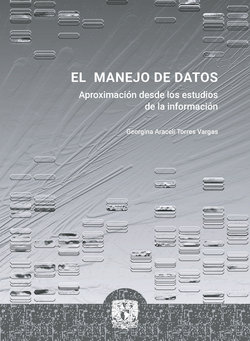Читать книгу El manejo de datos. Aproximación desde los estudios de la información - Georgina Araceli Torres Vargas - Страница 8
ACADEMIC LIBRARIES AND RDM
ОглавлениеThe data-intensive research environment and the movement towards Open Science present new opportunities for library professionals. University libraries in many countries have been assuming leadership roles in promoting open access and offering services in RDM. Traditionally, libraries provided data services for their users by acquiring datasets and ensuring their discovery and access. The new environment challenges libraries to move beyond the traditional service roles of facilitating the discovery and delivery of information resources (Fearon et al. 2013). It encourages a more participatory role in the research process and the development of new services to actively support scholars in managing and preserving research data. The concept of data life-cycle plays a central role in developing and organizing RDM consultative and technical services (Carlson 2014). Librarians offer unique expertise in metadata and archiving, and add value at different points of the data cycle.
Academic libraries began to provide a broader range of data management services to support researchers in meeting the requirements of funders and publishers in the last decade. Academic librarians with expertise in RDM who support researchers in meeting funders’ compliance and preparing data for release are a vital part of the services. The development of RDM services and the roles of academic libraries in data stewardship have been the subject of extensive survey research (Cox & Pinfield 2014; Tenopir, Birch, & Allard 2012; Tenopir et al. 2015). The focus of this research was on the types of services offered by academic librarians, maturity levels, and plans for future development. The findings indicate that academic libraries mostly offer consultative services and training, especially for data management planning. Technical services that involve maintaining a data repository and support for data archiving were limited. Many researchers see RDM services as an extension of traditional academic library roles in outreach and training.
Most of the research, however, focused on academic libraries in the United States and the United Kingdom. More recently, Tenopir et al. (2017) conducted a survey of research data services in European academic libraries. The study indicates that more European libraries currently offer consultative than technical services, but also manage infrastructure for data storage and collaborate with other units on campus. Cox et al. (2017) expanded the coverage to seven countries and provided an international comparison of several aspects of RDM development, including policy and governance, type of services, and staff deployment and skills. The IFLA Data Curation project built upon this prior research and expanded it by providing an international and interdisciplinary perspective. The design of the study and the findings are reported in the forthcoming paper (Tammaro et al. forthcoming). The preliminary findings about the types and structure of RDM services were presented at the Association for Information Science and Technology conference (Matusiak & Sposito 2017).
